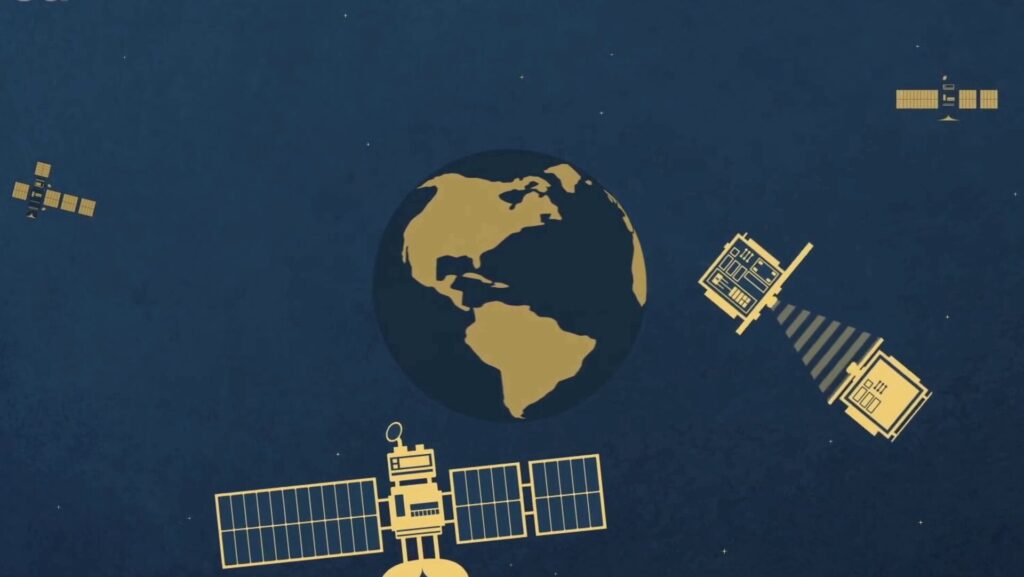
Space exploration has been a dream of humans for centuries. In the past, we have sent humans and animals into space to explore our celestial neighborhood and this has made the idea of space exploration even more enticing and popular.
While artificial intelligence (AI) technology is still in its early stages, it’s already doing some incredible things that will change how we interact with space forever.
The European Space Agency has announced that they are working on a project which will use artificial intelligence to send robotic elements into space.

This project is still in its early stages but could be used for anything from exploring new planets to studying the effects of microgravity on humans.
What’s more, AI has already become increasingly important for solving problems in science, engineering, business, and many other contexts too.
One thing it can help with is making sense of large amounts of data from spacecraft that are sent into deep space to study distant planets or galaxies using high-powered telescopes – all without human intervention.
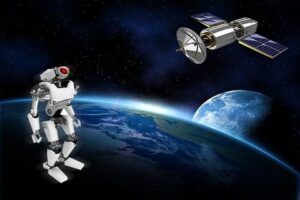
Assistive technologies can be incredibly valuable for space exploration. An AI assistant with the name Cimon was taken in December 2019 in the International Space Station(ISS). Later by carrying out the tasks that astronauts ask, Cimon will decrease the strain for astronauts.
It also announced that plans include creating a companion for astronauts aboard the Station named ROBOTA.
This companion could work alongside or work on missions that are too risky. It has been test-bed for three years at the ISS and is preparing to take a place on NASA future space missions with a purpose like decreasing stress and alerting Crew members to potential danger.

There are a large number of projects currently implementing artificial intelligence in space exploration.
AI will be able to provide newer knowledge in exploring space through technological innovation with each invention and future research, as it will become a significant asset to humans.
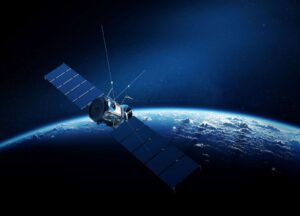
The impact of AI could influence many aspects of humans and robot exploration. The impact of AI could influence many aspects of humans and robot exploration. This includes the way we explore, how we learn about other worlds, and even what our space explorers look like.
So far there are two main areas where AI has been applied in space exploration: navigation systems and autonomous science experiments. Navigation systems provide data for spacecrafts to maneuver through their environment while autonomous science experiments provides sound research for future trials.

NASA has been collecting data about space for decades, and now they are using that data to understand our planet better.
With the increasing use of satellites, NASA will continue to be able to monitor these changes with more precision than ever before possible.
The advancements in this field have allowed scientists to create new visualization tools.

One of the most important parts of artificial intelligence in space is Earth observation. With this increase of knowledge and data, we will be able to understand and better protect our planet from changes in climate, pollution, natural disasters, and more.

Complex tasks are aided by machine learning and artificial intelligence. The benefits of this technology come in many forms, as it can be used to make predictions about the future, increase efficiency, or even identify patterns that humans would have difficulty seeing on their own. These applications will have a significant impact on human life for years to come.
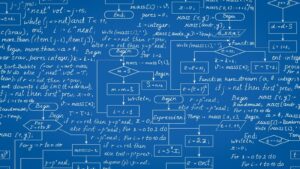
The development of resilient space systems is being facilitated by machine learning.
The use of algorithms in the design and testing stage can provide a more efficient process, saving time and money, while helping to avoid costly mistakes that might be made due to human error.
Machine learning algorithms are also able to run simulations on new designs for resilience before they are built, which means there is less need for expensive prototypes.
Machine learning is not always easy to do, but artificial intelligence in space can help make important decisions.
Complex tasks are aided by artificial intelligence. The benefits of this technology come in many forms, as it can be used to make predictions about the future, increase efficiency, or even identify patterns that humans would have difficulty seeing on their own.
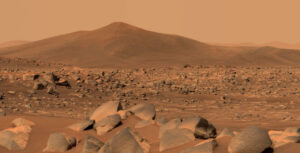
Artificial intelligence in space is helping to analyze the landscape of Mars, as well.
Ever since the era of space exploration began, scientists have been trying to figure out how to determine what is happening on Mars.
As we explore and study more and more about Mars, it has become clear that there are many things happening on this planet that are still unknown. Artificial intelligence in space is helping with analyzing the landscape of Mars by using satellite imagery.

There have been reports that AI systems intend to be used to help clear up space debris at an international space station.
Analytics India Mag has reported that:
Space has developed artificial intelligence systems that can detect, track and de-orbit space debris.
The idea that space junk and space debris can be removed using AI and technology could change the way in which we interact with complex space missions.
Computer science will help us harness large amounts of data created by autonomous algorithms and NASA satellites. Thereafter, the whole idea of earth observation and space observation can help improve deep space operations and communications from astronauts in space, back to earth.
We’ve seen how AI has changed the way we interact with space. But what does that mean for you?
If you want to learn more about AI, data analytics, and its potential benefits, talk to us at Incus Services today!
If you’re a data novice, start, or looking to get the most out of your existing data management, get into contact with them about their workshop or specific services.
Take a look at how we help clients.

